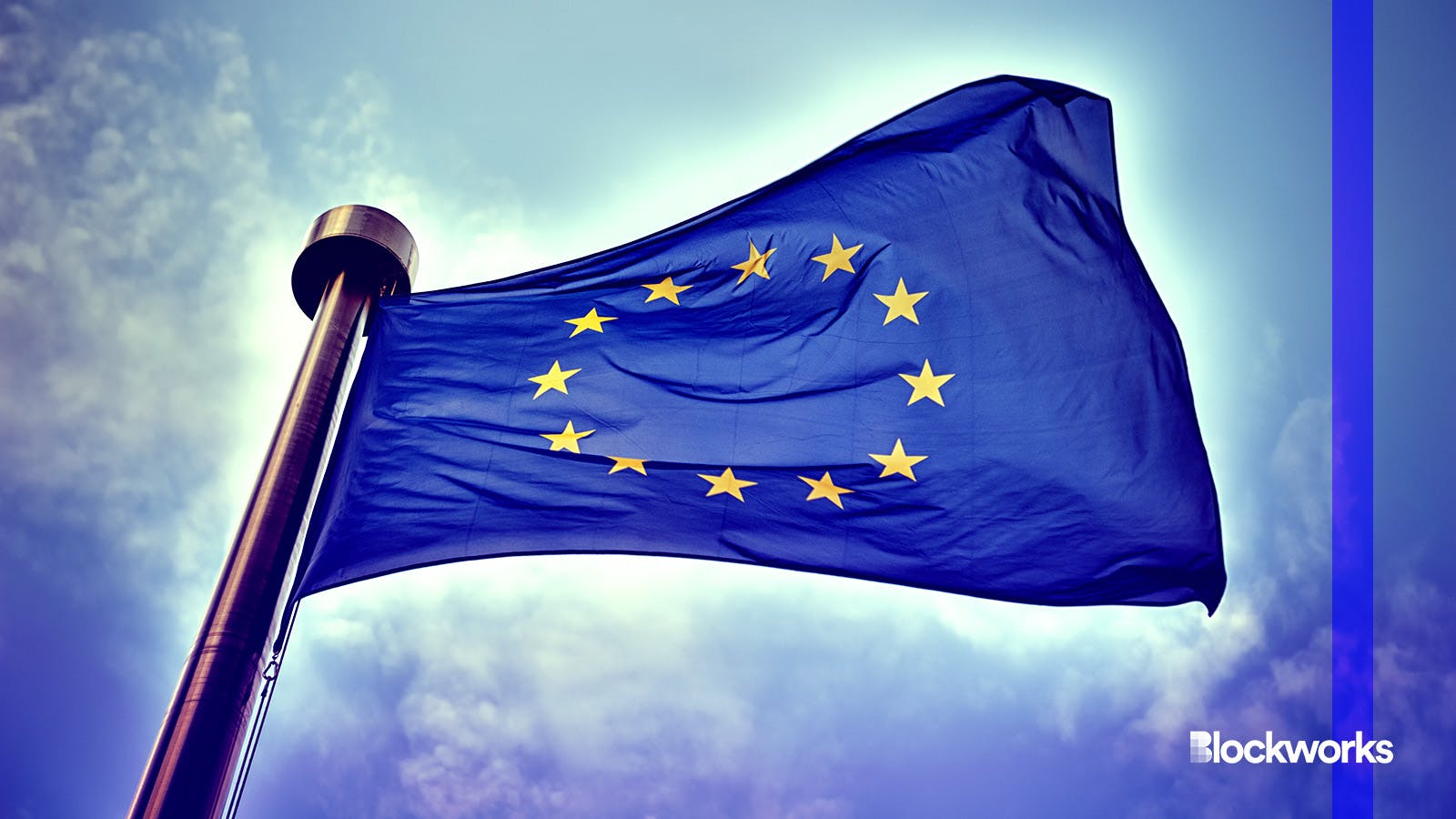The EU’s digital euro is inching closer to the ‘preparation phase’
The ECB first launched an investigation into the digital euro back in 2021

symbiot/Shutterstock modified by Blockworks
The European Union is heading into the “preparation phase” of its digital euro project.
According to the Governing Council of the European Central Bank, the next phase will start on Nov. 1 and will last two years. The ECB first launched an investigation into the digital euro back in 2021.
“It will involve finalizing the digital euro rulebook and selecting providers that could develop a digital euro platform and infrastructure. It will also include testing and experimentation to develop a digital euro that meets both the Eurosystem’s requirements and user needs, for example in terms of user experience, privacy, financial inclusion and environmental footprint,” the ECB wrote.
Digital privacy is a priority for the digital euro, with the Eurosystem hiding personal data and aiming to “achieve a cash-like level of privacy for offline payments.”
Read more: European Union’s digital euro may run on UTXO
The Eurosystem will also plan to maintain the ledger or “root of title” of the money being issued as well as the settlement of transactions of the digital euro. The Eurosystem, therefore, would “take responsibility for recoding digital euro liabilities in its own books.”
“We envisage a digital euro as a digital form of cash that can be used for all digital payments, free of charge, and that meets the highest privacy standards. It would coexist alongside physical cash, which will always be available, leaving no one behind,” ECB President Christine Lagarde said.
Read more: European Central Bank launches 24-month investigation into digital euro
In the previous — or current until November — phase, the ECB ran tests and “concluded that it is possible to smoothly integrate a digital euro into the existing payment landscape, while still leaving scope for the market to use innovative features and technologies when distributing a digital euro.”
While the project moves into its next phase, the ECB noted that it is “closely” following legislation and a decision on a digital euro will be considered “only after the legislative act is adopted.”
Get the news in your inbox. Explore Blockworks newsletters:
- The Breakdown: Decoding crypto and the markets. Daily.
- 0xResearch: Alpha in your inbox. Think like an analyst.






